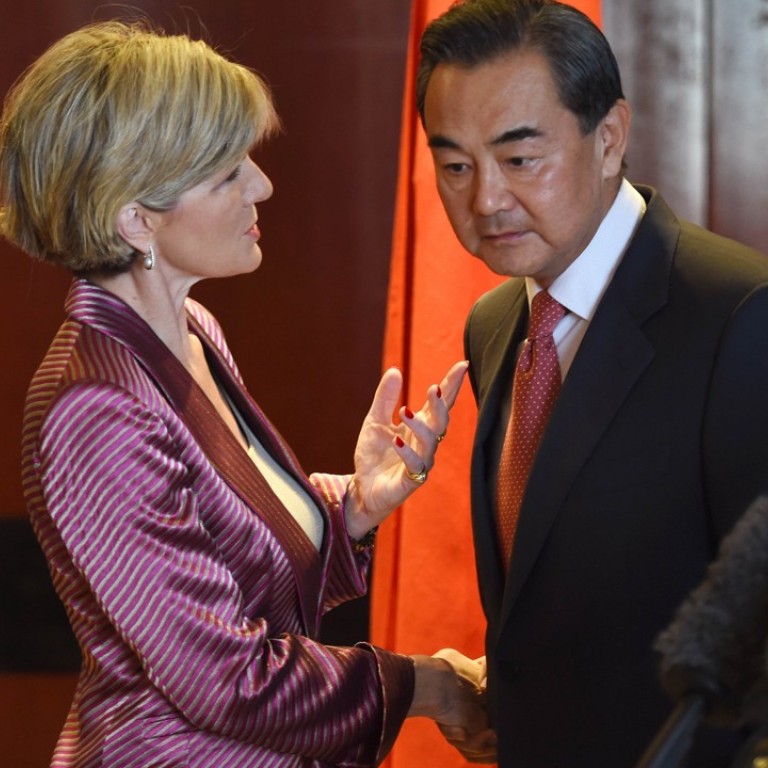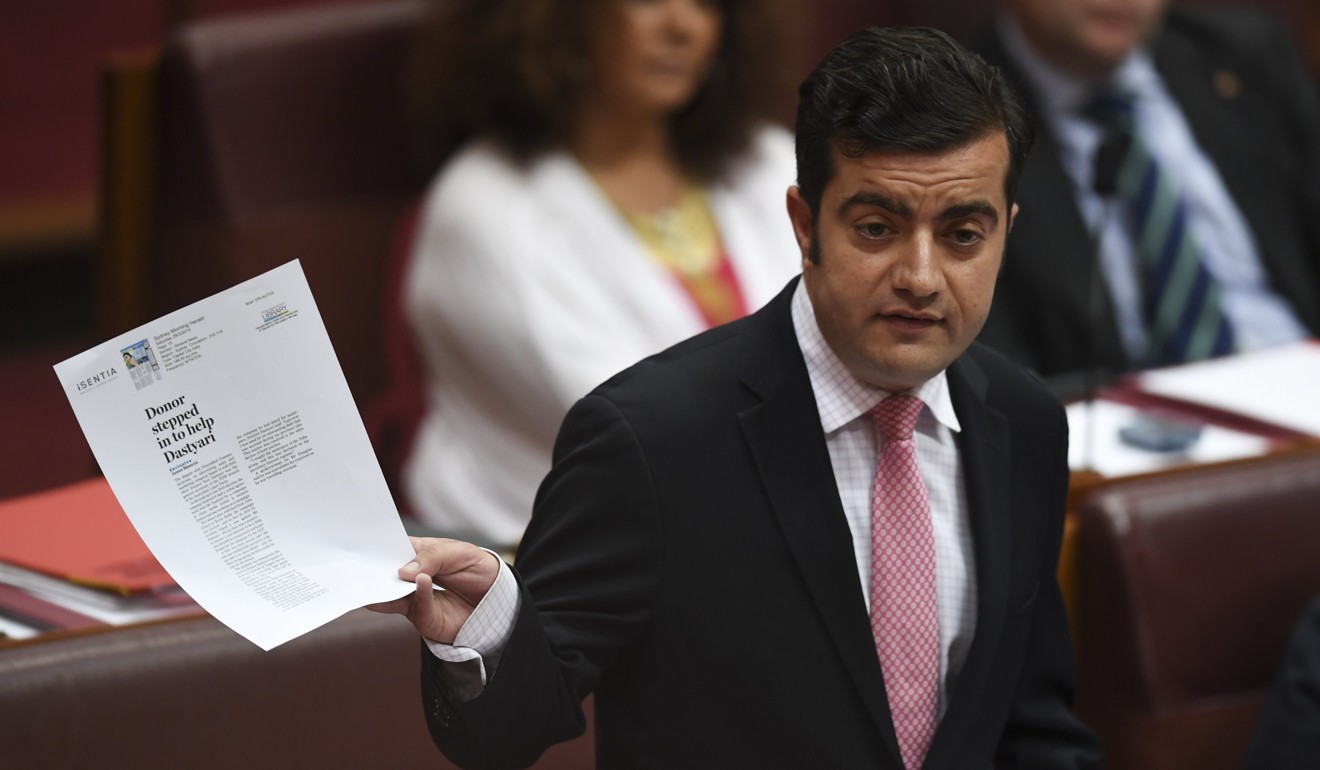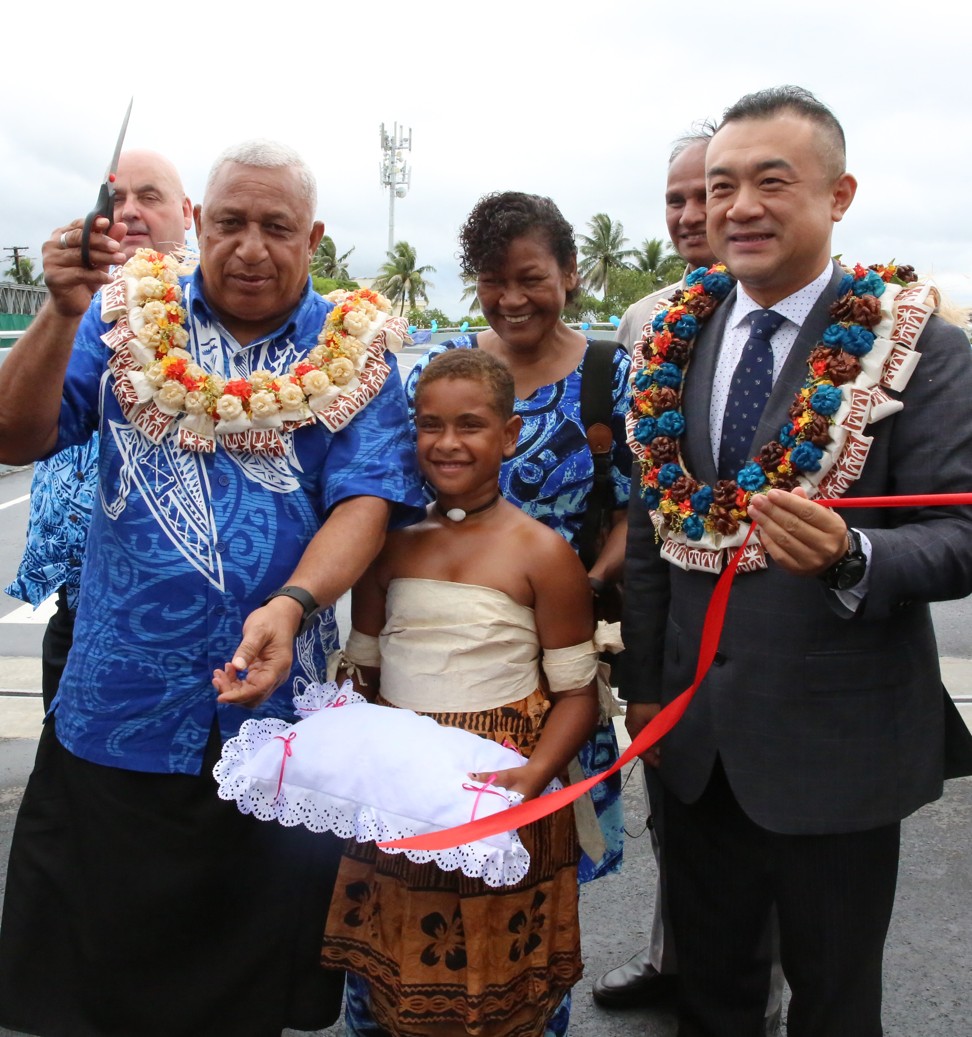
How Australia should respond to China’s growing role in the Pacific
Matthew Abbey says that for an Australian minister to lash out at China’s increasing development work in the Pacific is counterproductive, because Beijing is fulfilling a need Canberra cannot, and the two countries would do better to cooperate
International Development Minister Concetta Fierravanti-Wells last week labelled the aid “roads to nowhere” and “useless buildings”. Although Australian Foreign Minister Julie Bishop tried to temper the situation, the damage has been done.
The accuracy of the accusations is not necessarily important. Australia has traditionally viewed the Pacific as its neighbourhood, but it has failed to recognise its aid is no longer meeting regional demand.
It is only natural for partners to look elsewhere when development programmes dry up. Even if Chinese development programmes leave Pacific nations with high debt, the short-term positive impacts might be viewed as more important.
Australia must get used to a new order with China as a major player
Samoan Prime Minister Tuilaepa Sailele Malielegaoi said the minister’s comments could destroy existing relations between Australia and Pacific nations. Tuilaepa further remarked that China was in a better position to aid Samoa than Australia.
Although agreeing with the assessment of Chinese aid offered by Fierravanti-Wells, Fijian opposition leader Sitiveni Rabuka stated that because Australia withheld aid during periods of political instability, China successfully exploited the vacuum. A Vanuatuan newspaper also mocked Australian development programmes in the country.
Why Australia’s cure for Chines influence is worse than the disease
If Pacific nations start criticising Chinese development programmes, Australia might have the legitimacy to join in the chorus. However, Australia is acting alone in questioning the aid, which makes the accusations irresponsible.

Australia’s balancing act between US and China will prove one of its greatest challenges
Although Australia is still the largest aid donor to the Pacific, geopolitics are changing fast. Despite the growing tension, Australia and China have aligned interests in the Pacific. Indeed, they have partnered in development programmes before. Questioning Chinese motives in the region is necessary, particularly considering allegations of unfavourable terms with Pacific leaders. But blunt criticism of Chinese development projects is no solution.
Why Australia needs a smarter China policy
If Australia wants to shape development outcomes in the region, it needs to enhance development cooperation with China and forgo the recklessness. Another solution would be revamping its aid budget to fill the void it left years ago. Given the Chinese foothold in many Pacific nations, there is a need to act quickly. Otherwise, Australia will end up on a road to nowhere.
Matthew Abbey is a freelance journalist and political commentator based in Bangkok

